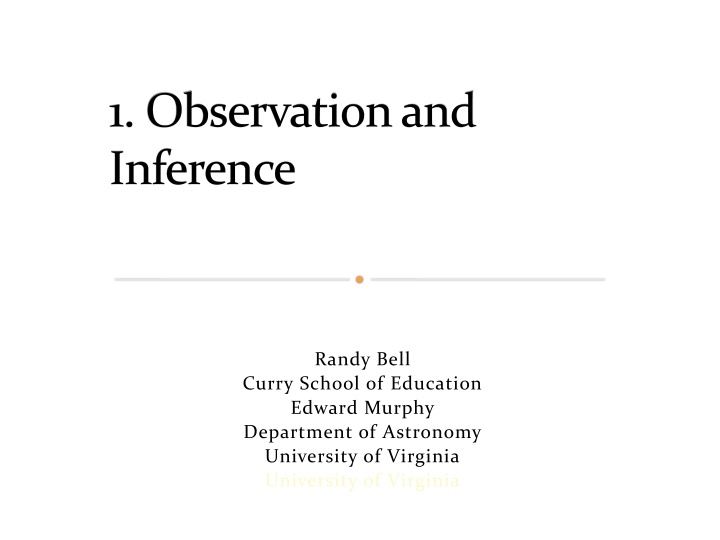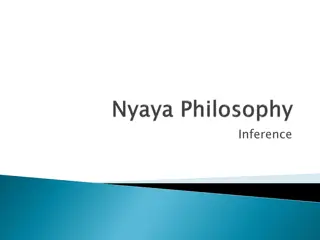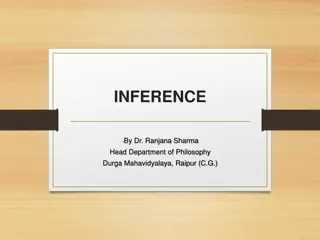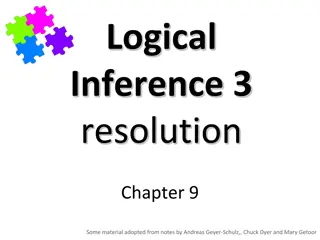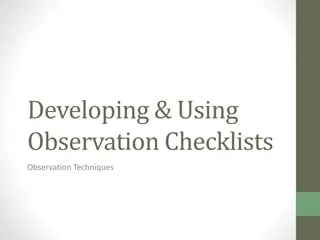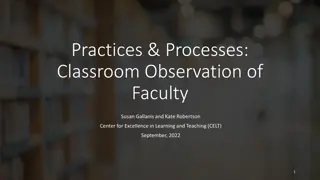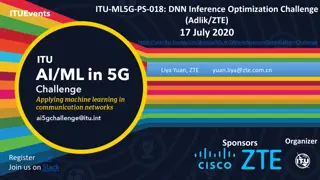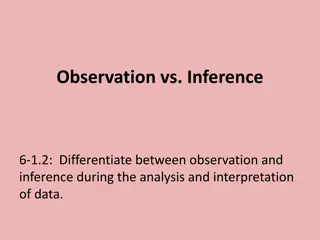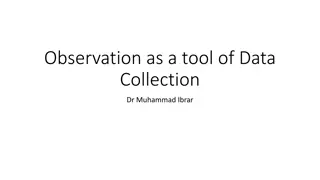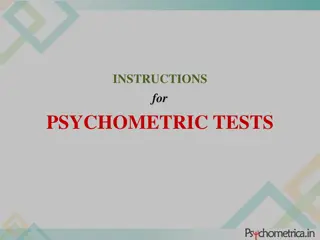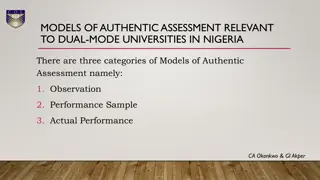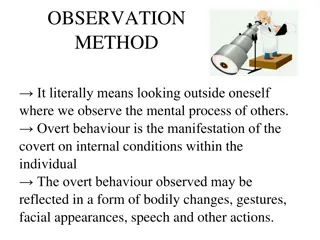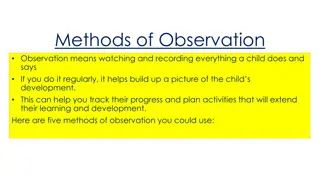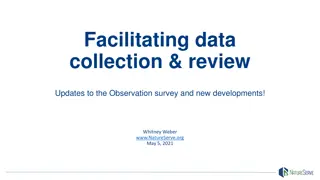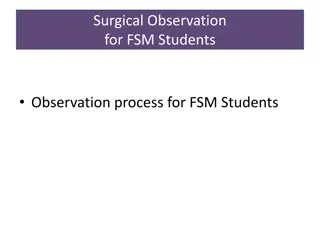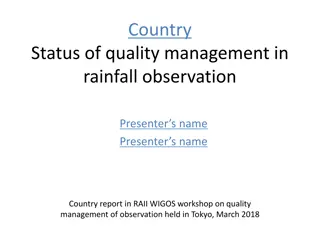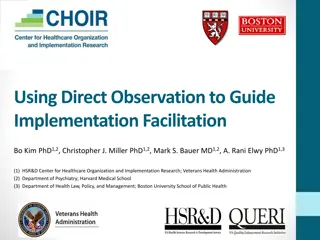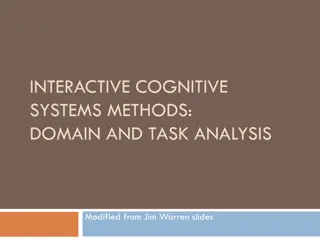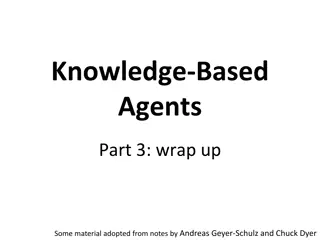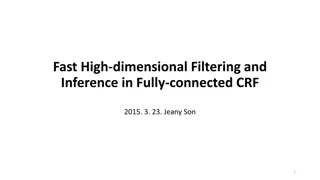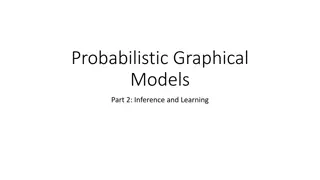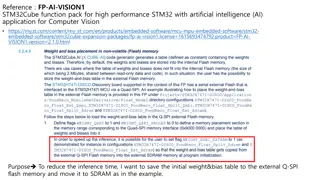Observation and Inference
Explore the significance of observations and inferences in the scientific process. Understand how scientists use these skills to gather information, make conclusions, and refine knowledge. Discover the nuances between observations and inferences, and the critical role they play in scientific advancements.
Download Presentation

Please find below an Image/Link to download the presentation.
The content on the website is provided AS IS for your information and personal use only. It may not be sold, licensed, or shared on other websites without obtaining consent from the author.If you encounter any issues during the download, it is possible that the publisher has removed the file from their server.
You are allowed to download the files provided on this website for personal or commercial use, subject to the condition that they are used lawfully. All files are the property of their respective owners.
The content on the website is provided AS IS for your information and personal use only. It may not be sold, licensed, or shared on other websites without obtaining consent from the author.
E N D
Presentation Transcript
1. Observation and Inference Randy Bell Curry School of Education Edward Murphy Department of Astronomy University of Virginia University of Virginia
Three Aspects of Science Process Skills: Questioning Science Science Processes Processes Scientific Scientific Knowledge Knowledge Observing Measuring Inferring Predicting Classifying Nature of Nature of Science Science
Process Skills & Nature of Science Observation- Using your 5 senses to gather information about your surroundings Observe This!
Candle Demonstration Nut Sliver String Cheese Candle Holder
Process Skills & Nature of Science Observation- Using your 5 senses to gather information about your surroundings Inference- A conclusion based on evidence
Process Skills & Nature of Science Observation- What you see happening Inference- What you think is happening
Scientists strive to pay attention to minute details when making and recording observations. It is not going too far to say that scientific conclusions are only as strong as the observations upon which they are built. Fallibility always exists. Scientists work to limit errors through experimental design, sophisticated instruments, and repetition of observations. Scientists background knowledge and training can influence their observations.
Inferences are different from observations in that there is less chance of widespread agreement. Not all inferences are created equal. Wild inferences are an opportunity to analyze why a particular inference appears absurd.
Notice all the computations, theoretical scribblings, and lab equipment, Norm .Yes, curiosity killed these cats.
Science is different from pseudoscience, and history is different from pseudohistory, not only in evidence and plausibility, but in how they change. Science and history are cumulative and progressive in that they continue to improve and refine knowledge of our world and our past based on new observations and interpretations. Pseudohistory and pseudoscience, if they change at all, change primarily for personal, political, or ideological reasons. Michael Shermer, 2002, Why People Believe Weird Things: Pseudoscience, superstition, and other confusions of our time.
On way to practice observation and inference is with How do we know ? questions.
Observation may be defined as using what you see, feel, taste, hear, or smell to gather information about the world around y0u. Scientists use observations to describe what they experience. Scientists make and record observations with care. Scientists often use tools to extend or enhance their observations. Scientists test their ideas against observations.
Field Geology 201 Your geology class is on a field trip to a fossil bed in Alberta, Canada. While exploring the site, you discover a slab of rock covered with interesting impressions. Your instructor invites the class to make observations and inferences about the imprints
Whats the Point? For process skills instruction: Good way to practice making observations and inferences For nature of science instruction discuss: Scientific knowledge is based on observations and inferences Scientific ideas/conclusions can change with new data
Effective Science Instruction Includes all three aspects of science: Knowledge of science Processes of science Nature of science Beware of confusing processes with the nature of science! observing/inferring nature of science
